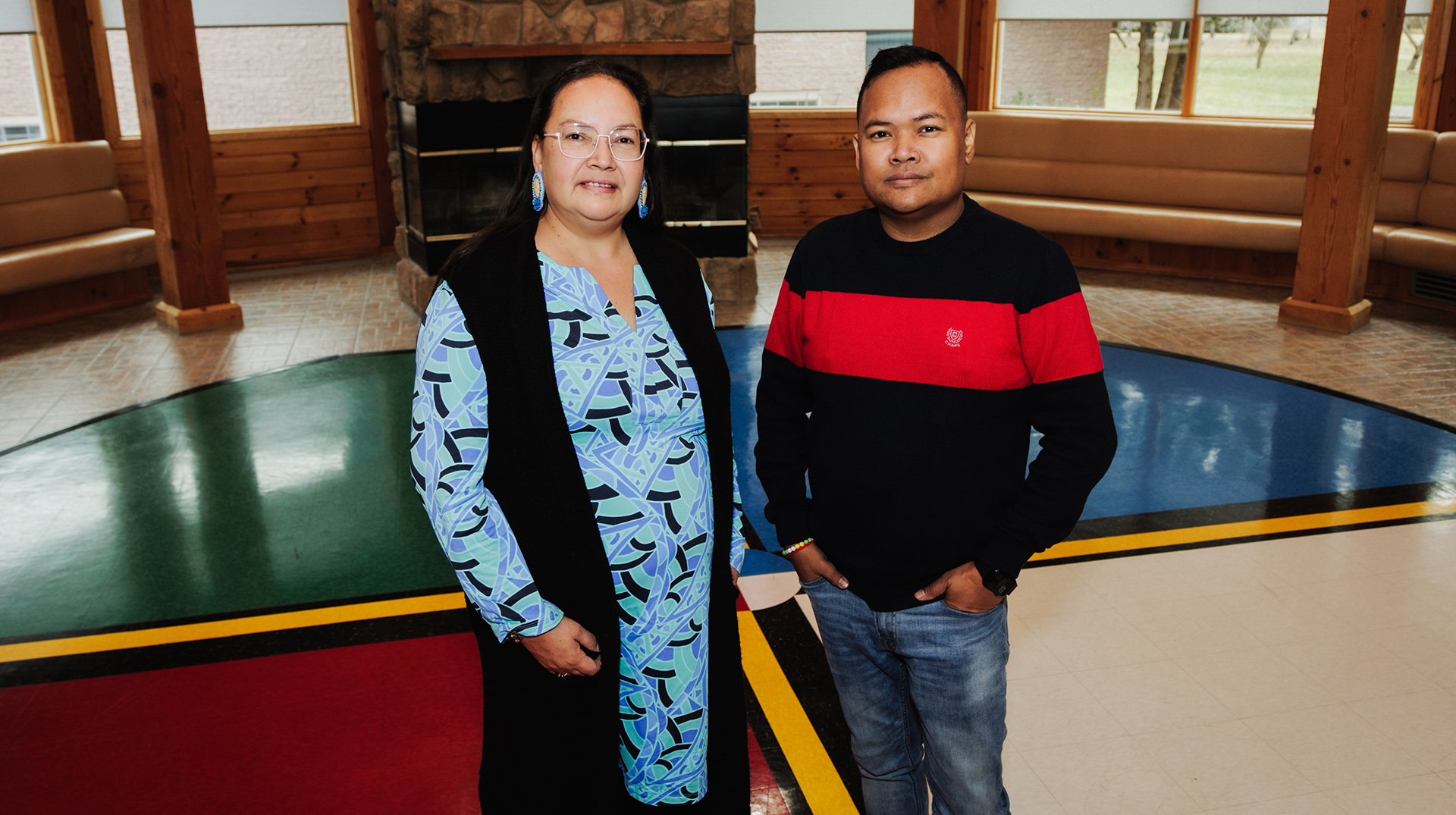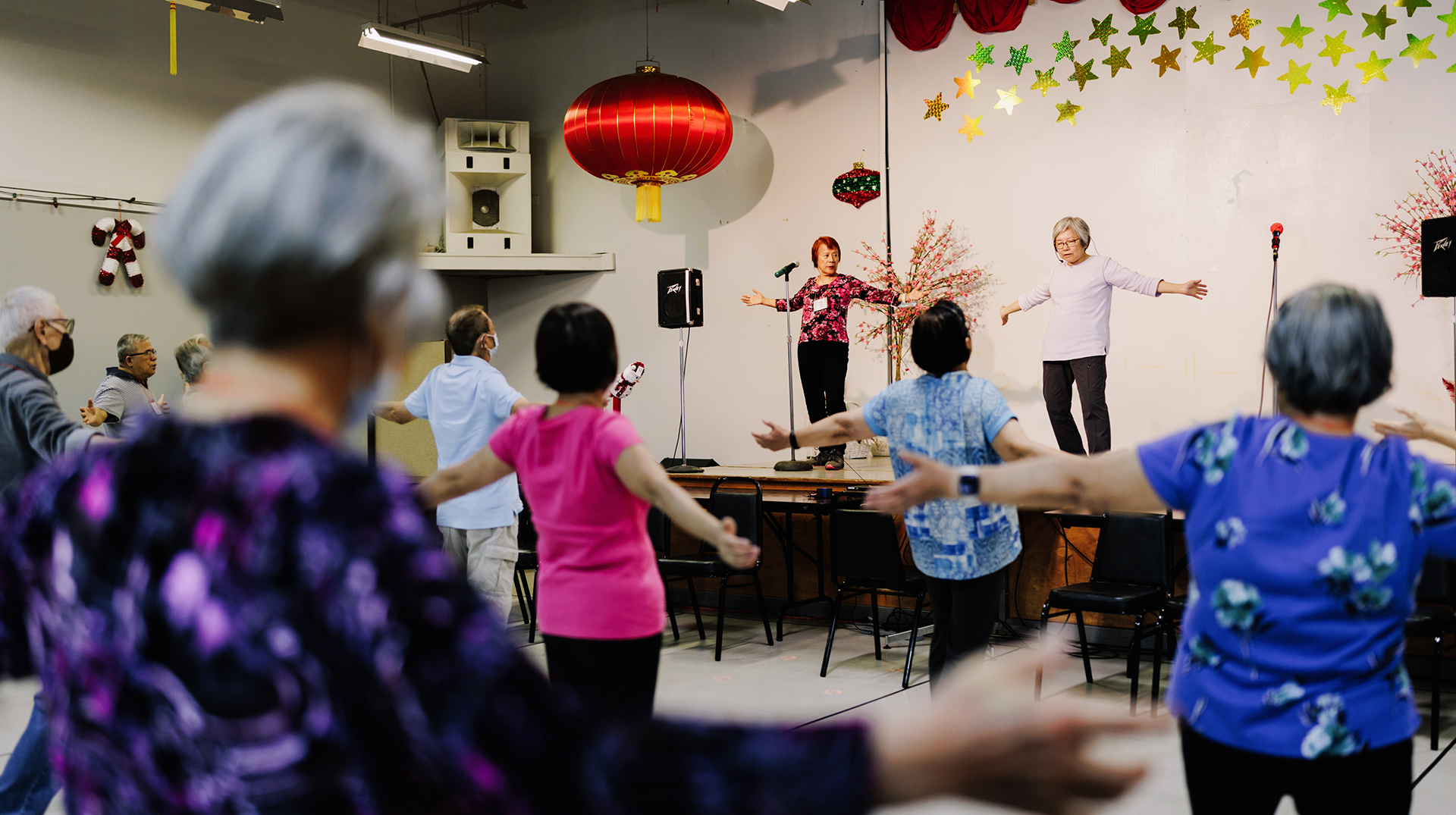
![]()
This project is breaking barriers. It will create a ripple effect that will keep growing long beyond the funding period and help equip the communities to raise themselves up.”
Candice Snake
Manager of Mnaasged Children’s Circle of Care
‘This project is breaking barriers’
An Indigenous child wellbeing organization has launched a program to strengthen family unity, with the goal of creating a positive “ripple effect” for generations to come.
The initiative is part of Mnaasged Child and Family Services’ ongoing work to keep Indigenous children — who now account for over half the kids in Canada’s foster homes — with their families in their home communities.
With federal pandemic-recovery funding allocated by United Way Elgin Middlesex, Mnaasged has hired three new specialized counselors and started providing frontline staff with culturally relevant training in the areas of mental health, addictions, life skills and healing from violence.
“This project is breaking barriers,” said Candice Snake, Manager of Mnaasged Children’s Circle of Care. ”It will create a ripple effect that will keep growing long beyond the funding period and help equip the communities to raise themselves up.”
Mnaasged — whose name in English translates to “beautiful rays of the rising sun, shedding light on the future – our children” — aims to help families heal, break the cycle of children being removed from homes, and restore First Nations jurisdiction over their own child and family services.
Project will give people the tools to help with healing
Based in Munsee Delaware First Nation, about 45 kilometres southwest of London, Mnaasged serves and supports six First Nation communities in the region. For nearly 20 years it has been working to eliminate the continued overrepresentation of Indigenous children in foster care through family counseling, advocacy and children and youth programming.
Despite making up roughly seven per cent of Canada’s youth population, Indigenous children account for 52 per cent of kids in private foster care homes, a reality tied to historical traumas caused by the policies such as Canada’s residential school system and the Sixties Scoop.
“As communities, we have shared trauma that has resulted from oppressive colonial policies like residential schools and the Sixties scoop. As individuals, those policies have led to so many personal experiences with addiction, poverty, mental health and violence that are linked to family breakdown within our communities,” said Snake.

“This project will address those issues and give people a safe space to learn new ways to cope.
“It will strengthen individuals and families.”
The new team includes a Community Engagement Worker, a Mental Health Support Worker, and an Elder, who will support Mnaasged’s work with Indigenous communities, including Aamjiwnaang First Nation, Caldwell First Nation, Eelünaapéewi Lahkéewiit, Kettle and Stoney Point First Nation, Munsee-Delaware Nation, and Oneida Nation of the Thames.
Affirming First Nations’ inherent right to be responsible for children
First Nations have always maintained their inherent right to have responsibility over their own children.
This year, the Supreme Court endorsed Canada’s Act respecting First Nations, Métis, and Inuit children, youth, and their families, affirming Indigenous peoples’ right of self-government, which includes jurisdiction in relation to child and family services and acknowledges the significance of reuniting Indigenous kids with their communities.
Mnaasged is expected to achieve full agency status as a Children’s Aid Society in the next year.
One of 26 groups that United Way Elgin Middlesex allocated to receive funding from the Government of Canada’s Community Services Recovery Fund to address needs that have emerged or increased since the start of COVID-19, Mnaasged runs a foster care service, working with parents to ensure Indigenous kids in care have access to support and resources from their home communities.
The pandemic recovery funding has enabled it to “directly address the needs of the youth, adults and parents in the six communities,” said Youth Services Supervisor Sovannaroth Yik.
“Each community has unique trauma, and also unique strengths,” said Yik. “We want to collaborate with the communities and ensure we have a meaningful impact.”
Pandemic forced Mnaasged to shift services to respond to emergent needs
As with many family-serving agencies across the country, Mnaasged’s workload changed and grew during pandemic lockdowns.

“The impact of the COVID-19 pandemic on Mnaasged is still being felt today,” said Snake. “We lost Elders in our communities — and that grief is compounded by the fact that when an Elder dies, we also lose traditional knowledge.”
In addition, First Nations faced new challenges related to pandemic lockdowns.
“COVID put a spotlight on how issues such as poverty and compounded grief are impacting families and leading to family breakdown — especially in crisis.”
But it also shone a light on the spirit of unity and hope in the communities. Day after day, community members from the six First Nations would come out to help prepare, pack and deliver donated food to those in need and check in on families who were struggling, Snake said.
As pandemic restrictions were lifted, Mnaasged remained determined to find a way to provide high-quality, effective support and training to engage community members.
“When I saw the opportunity for this funding, I thought we could use this right away,” Snake said.
“It will make a difference.”
See the full list of funded projects and for more information about the Community Services Recovery Fund.
Topics : CSRF


